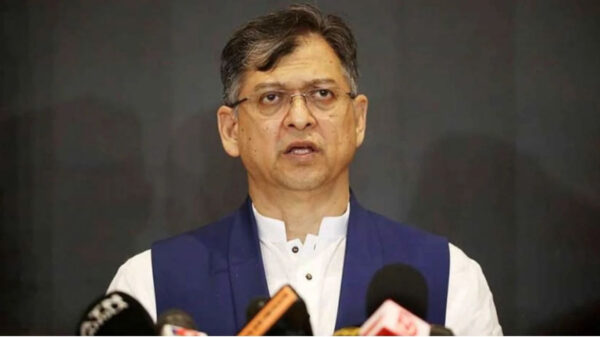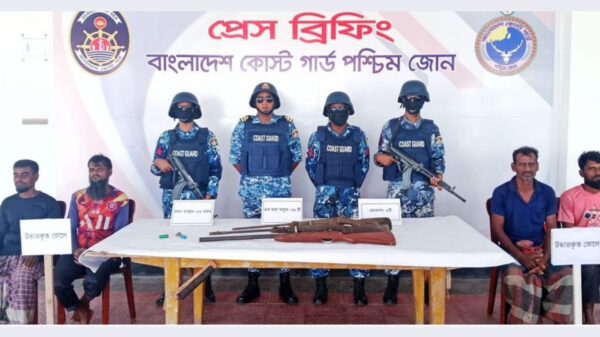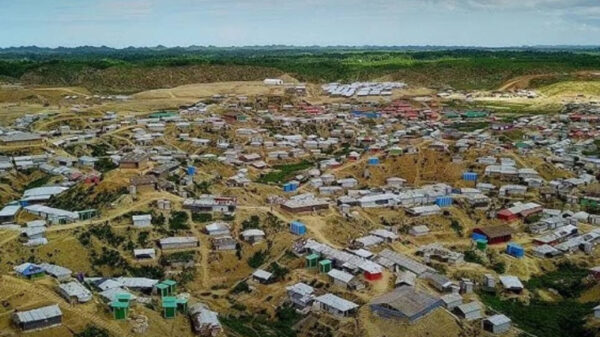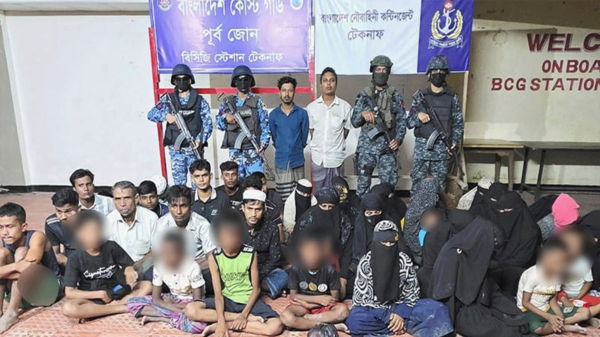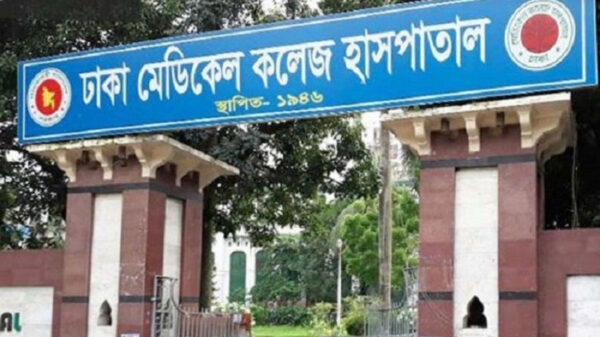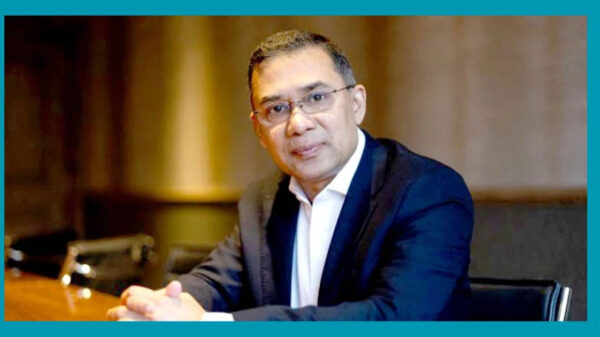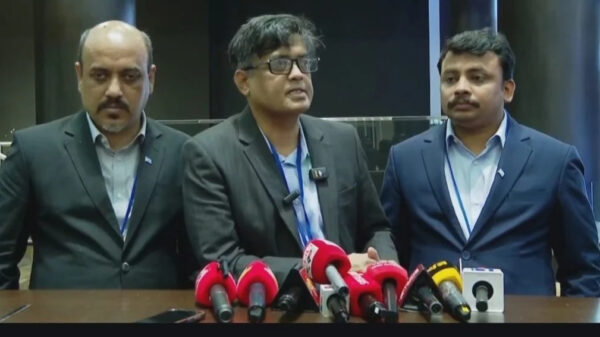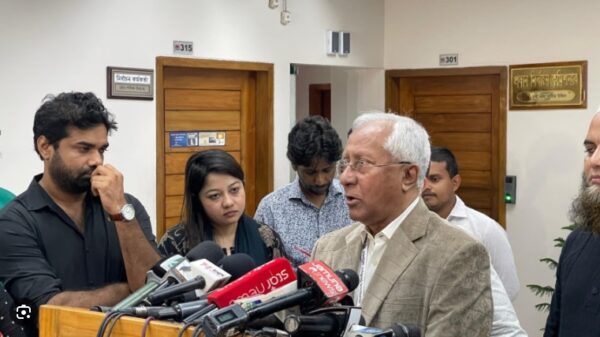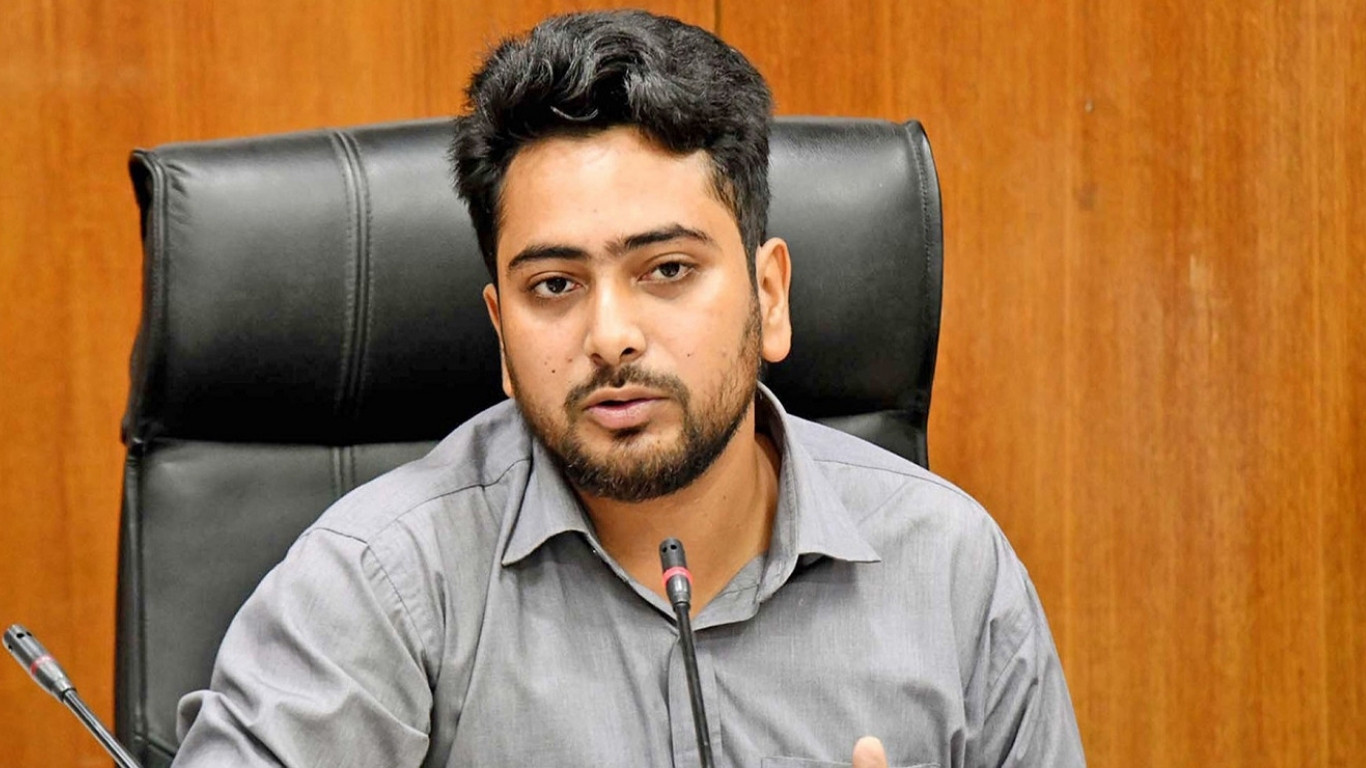Staff Reporter:
Nahid Islam, a key coordinator of the July uprising, revealed on Thursday that they had offered Nobel laureate Prof Muhammad Yunus the responsibility of leading a new government a day before the fall of Sheikh Hasina’s fascist regime on 5 August last year.
He made the disclosure while testifying at the International Crimes Tribunal (ICT-1) in a crimes against humanity case filed against Hasina and two of her top aides – former home minister Asaduzzaman Khan Kamal and former inspector general of police Chowdhury Abdullah Al-Mamun. While the former police chief has appeared before the tribunal, the other two are being tried in absentia.
“The offer to Dr Yunus was made because, in a time of national crisis, he could provide leadership,” Nahid told reporters after after giving his testimony, adding, “Since we had decided on 3 August to topple the Hasina government with our one-point demand, we were already planning for a new government.”
The student movement had called for the “March to Dhaka” programme initially on 6 August, but brought it forward to 5 August after learning of government plans to shut down phones and the internet and to target movement leaders.
Nahid, the 47th prosecution witness in the case, concluded his second-day testimony before ICT-1, headed by Justice Md Golam Mortuza Mozumder. He was cross-examined by state-appointed defence lawyer Advocate Amir Hossain, with proceedings adjourned until Sunday.
In his deposition, Nahid gave a detailed account of police and law enforcement brutality during the movement.
“Police and various law enforcement agencies fired indiscriminately at protesters, and were even instructed to fire from helicopters. Armed activists aligned with the Awami League also attacked and tortured with domestic weapons,” he said.
He directly blamed Hasina, Kamal, and senior law enforcement officials for the killings during the 2024 uprising, alleging that the violence was orchestrated to consolidate power.
Nahid urged the ICT to severely punish those responsible.
Recalling the mobilisation of the protest, he said, “On 4 August 2024, as per our previously announced programme, we held a sit-in at Shahbagh and called the ‘March to Dhaka’ for 6 August. However, the government imposed curfews and prepared to suppress the movement. We learned mobile networks and internet would be shut down, and there was a risk of killings or disappearances. We therefore advanced the march to 5 August.”
Nahid also highlighted the role of Mahfuz Alam, current adviser to the Ministry of Information and Broadcasting, in coordinating with student organisations and civil society to ensure the success of the march.
The witness gave a harrowing account of his abduction and torture.
“DB police abducted me, blindfolded and bound me in handcuffs and black cloth. I lost consciousness several times during interrogation. Later, they dumped me in Purbachal. From there I returned to my Banasree residence and was admitted to Gonoshasthaya Hospital, where I held a press briefing to expose my disappearance and torture. Other coordinators, including Hasnat, Sajis and Hasib, were forcibly taken by DGFI and made to sit with three ministers; the photo circulated in the media,” he said.
On media reforms, Nahid criticised the post-Hasina landscape. “The media has not undergone the expected reforms. Electronic media, in particular, remained under government influence during the movement. While some journalists and outlets supported the uprising, many backed the regime. Media workers who supported fascism must also face justice,” he said.
ICT-1 had framed charges against Hasina and two others on 10 July for alleged crimes against humanity, with former IGP Mamun turning state approver after giving a confessional statement.
Nahid’s testimony forms part of ongoing proceedings, while two other cases remain pending against Hasina, including her alleged involvement in enforced disappearances and the 2013 Shapla Chattar killings.


